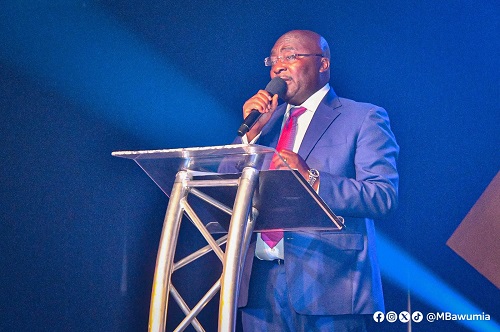
Dr. Bawumia explains why Ghana embarked on economic digitalization
The Vice President, Dr. Mahamudu Bawumia, explained the government's seven-year drive to aggressively digitalize the Ghanaian economy.
Speaking at the 20th Ghana Club 100 Awards in Accra, Dr. Bawumia emphasized the need to address the challenges inherent in an informal economy to achieve economic transformation.
"Before we can build a transformational economy, we need to take care of major problems that are in the informal economy," Dr. Bawumia stated. "We were facing major challenges in this area when we came into office."
He elaborated on the detrimental effects of an informal economy, including fostering indiscipline, corruption, lawlessness, tax evasion, an unbanked society, poor loan repayment, identity fraud, and lack of reliable systems for address, age verification, insurance, birth certificates, passports, and government payroll.
Dr. Bawumia stressed that these issues hinder economic progress. "We set out to formalize the economy and relied heavily on digitalization to achieve this goal."
He further highlighted the progress made in formalizing the economy through digitalization. "We have enrolled over 17 million people in the Ghana Card program, linked all bank accounts, SIM cards, tax identification numbers, NHIS numbers, and government payroll to the Ghana Card. This increasing formalization is bringing transparency and making it easier to do business."
Dr. Bawumia emphasized the importance of continued efforts to achieve full economic transformation. "Digitalization is reducing corruption and making government services more accessible through Ghana.Gov and other platforms. We are seeing an economy that is becoming more formal and transparent, and this is beneficial for businesses and the country as a whole."